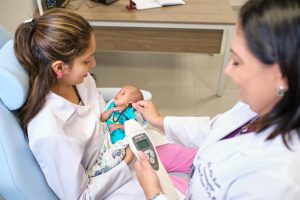Dilemma of Health Rights of Vulnerable Citizens
Universal health coverage (UHC) is an essential tool to ensure that no one is excluded by any means to avail the required health services.However, vulnerable individuals and groups face exclusion from use of health services as well as social services due to a number of factors. Vulnerable population is the population which is vulnerable to abuse of human rights, and includes children and women, disabled, elderly, refugees, internally displaced and stateless persons, minorities, those affected by human immunodeficiency virus (HIV) and transgenders etc.
 Courtesy WHO Int. Health topics
Courtesy WHO Int. Health topics
Myths in Healthcare
In Pakistan, there is a self-perpetuating myth that the ordinary citizen does not enjoy any inherent right to free public healthcare, and fundamental rights are guaranteed to the extent of economic, education and other rights only. This notion may have crept in as medical and health professionals have apparently not approached this subject in tandem, or perhaps this is more of a constitutional public health matter than of public health alone, and is beyond the scope of public health professionals who have not been exposed to international public health legislation.
Health Rights Embedded in the Constitution
Perhaps due to this misconception, no serious and concerted efforts have been made to emphasise that health rights in Pakistan are embedded in the country’s Constitution, and a calm and laidback approach has been adopted by civil society, health practitioners and public health experts. Due to the fact that the affluent and prosperous segment of society prefers and can afford private healthcare, the vulnerable, under-privileged and poor are left to be catered to by the public healthcare system in matters related to even basic health needs. The provision of constitutional protection to vulnerable individuals and groups is, hence, essential. Efforts have been made by the United Nations as well as activists and scholars in connection with expanding the scope of human rights to health.
Quality of Life and WHO
To examine health issues threadbare in the perspective of human rights laws is an important dimension,as the quality of life (QOL) of this threatened population group is affected.They face the additional drawback of being unable to project their voice on the media and agitate, which further compromises their productivity and affects their capacity to earn a livelihood. Constitutional provisions have been highlighted in different countries and under the banner of the World Health Organisation (WHO), and compared with the on-ground situation in Pakistan. There is an immense significance in examining constitutional provisions as such an analysis can invoke debate and facilitate the recognition of the constitutional provisions that ensure the state’s responsibility to provide healthcare to the masses, especially the vulnerable population.
Author Prof Dr Nazia Mumtaz
Source: https://jpma.org.pk/article-details/11013
https://doi.org/10.47391/JPMA.2078

Leave A Comment